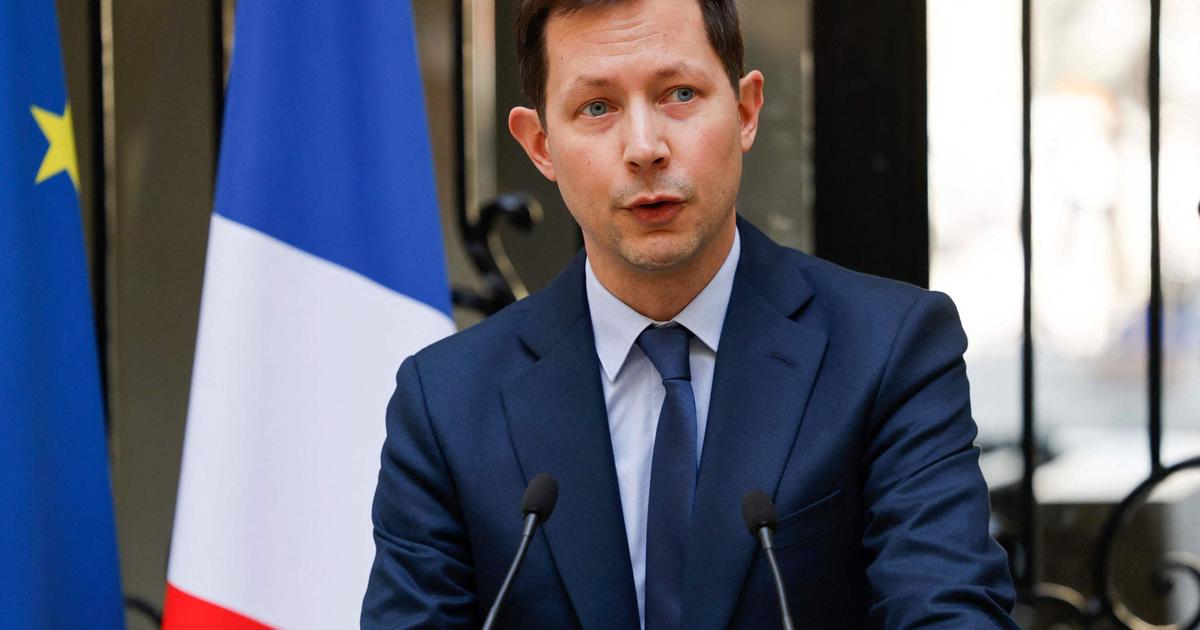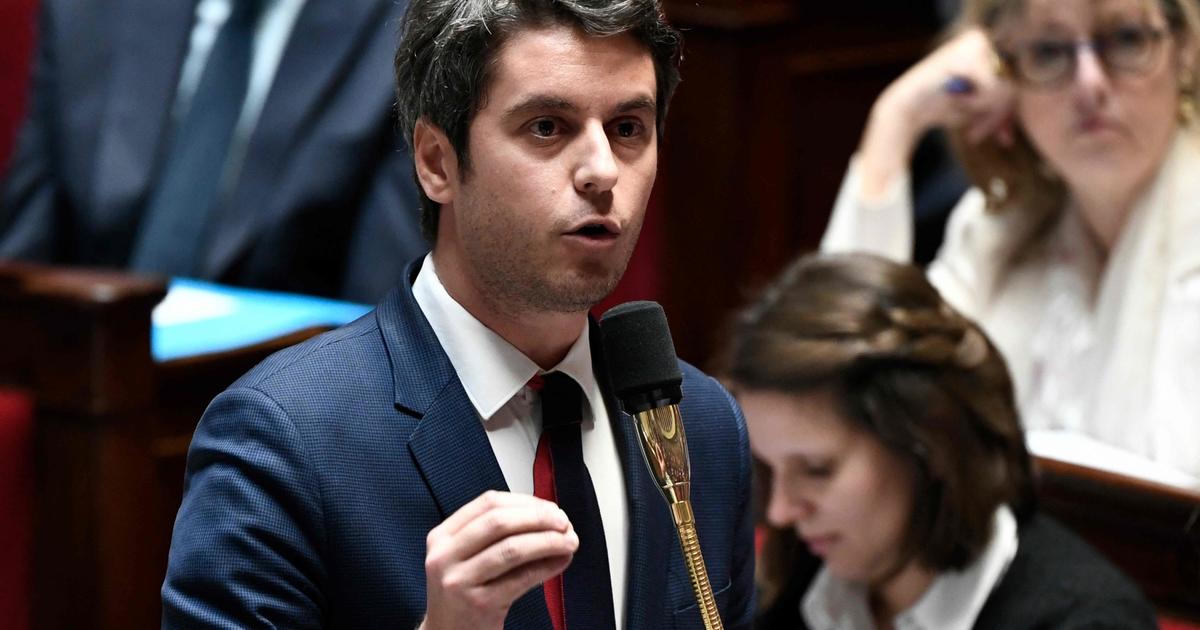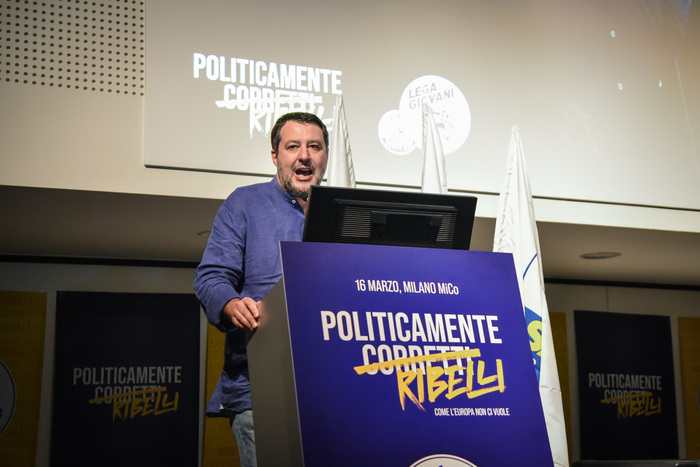Giorgia Meloni's victory in the Italian elections last Sunday places Emmanuel Macron in a dilemma.
The French president knows that it is impossible to reproduce with Meloni the harmony that he maintained with the outgoing prime minister, Mario Draghi.
And he doesn't want to either.
But he believes that he can continue cooperation with Italy if Draghi's successor maintains, as he has promised, the commitment to the European Union (EU), the euro and NATO.
The risk, for Macron, is to help normalize the heiress of Italian neo-fascism if he is too nice to her and cooperates like any other leader.
He could indirectly end up homologating in France the leader of the extreme right, Marine Le Pen, who still scares part of the electorate.
Former French President François Hollande analyzed it in a meeting with journalists weeks before the vote in Italy: “A victory for the extreme right could prefigure what could happen in France in the 2027 presidential elections. The Italian example would confirm Le Pen in the strategy that it has had for ten years, and which consists of making itself accepted as a party like the others, borrowing from the left the social discourse, and from the right the demagoguery on matters of security and immigration”.
The Italian elections mark the end of an exceptional moment between the two countries.
Draghi's experience and authority commanded respect and admiration in Macron.
The affinity between the two was ideological and personal.
Draghi's year and a half in power allowed Macron to open the game of alliances that drive Europe, beyond the eternal
Franco-German
marriage .
"Deep down, this relationship with Draghi's Italy was an adulterous relationship that made us happy, and this is over," says veteran Alain Minc, who knows both the Italian and the Frenchman well, in his office in Paris.
Minc, consultant, essayist and unofficial adviser to several French presidents, continues: "Although we can hope that things will develop correctly with the Meloni Government, there will not be the intellectual, cultural, instinctive complicity that existed between Macron and Draghi."
At another point in the conversation, he adds: "You will have observed, in Macron's statements, that at no time has he sought to isolate Meloni."
And so it is.
Macron's reaction to Meloni's choice has been lukewarm.
Neither alarmism nor gesticulation.
No joy, of course.
The Elysée Palace limited itself to declaring: “The Italian people have made a democratic and sovereign choice.
We respect her.
As neighboring countries and friends, we must continue to work together.
As Europeans, we will manage to face our common challenges”.
It is not the statement of someone who believes that fascism has come to power in the EU's third largest economy.
Nor are they the words of a leader who thinks that, with Meloni at the helm, the permanent row that Franco-Italian relations became during the first government of Giuseppe Conte, between 2018 and 2019, will repeat itself.
Macron, in a meeting 15 days ago with the journalists who cover the Elysee, stated that, whatever the result on September 25, the cooperation between the two countries would continue.
He did not contemplate a return of tensions.
According to the French president, today there are "ineluctable elements" that would make swings difficult.
One is the Quirinal Treaty, signed by France and Italy in 2021. The other is Draghi's legacy and decisions in European politics, "difficult to question in the context of the EU".
It is as if Mario Draghi were insurance against an anti-European drift in Italy, or against the populist racket.
"I am with Mario thoroughly," Macron said in a huddle with journalists after the meeting.
Europeanist and Atlanticist creed
The key, for Meloni to be more or less accepted in Paris, is to preserve Draghi's Europeanist and Atlanticist creed.
The French and the Italian could understand each other in the renegotiation of the stability and growth pact, which sets the deficit and debt limits for European countries.
However, there is a
but
, and not a minor one: the distance between Meloni's "god, country, family" and a Macron inscribed in the liberal and republican tradition of "liberty, equality, fraternity".
The ideological abyss was subtly expressed by the French prime minister, Élisabeth Borne, when she applauded on Monday, on the BFM-TV network, the wake-up call to Rome that the president of the European Commission, Ursula von der Leyen, had given a few days earlier.
“What the president of the Commission is saying”, said Borne, “is that in Europe we defend a certain number of values and obviously we will be careful that these values of human rights, of respect for others, especially the right to abortion, be respected by all”.
Macron's excessive complacency with Meloni could backfire.
After all, many French people might think, if Meloni is acceptable, why not Le Pen?
Macron knows that if a far-right candidate succeeds him after the 2027 presidential elections, he will have failed.
The problem, according to the socialist Hollande, is that, once Meloni begins to frequent European councils and participate in decisions, his image could be normalized.
“Deep down”, he says, “Europe is a washing machine for leaders”.
Le Pen reached the second round in the last two presidential elections in France against Macron.
Since this summer he heads the first opposition group in the National Assembly.
On Monday he celebrated the victory of the right-wing bloc as his own.
"The Italian people have decided to take their destiny back into their own hands by electing a patriotic and sovereign government," declared the Eurosceptic and anti-Atlanticist Le Pen.
She has not managed to completely break the cordon sanitaire that prevents the traditional French right wing from allying with her formation or asking for the vote for it.
And those, like the commentator Éric Zemmour, who have advocated the union of the right under the ultra leadership, have failed.
For both, Italy shows the way.
Follow all the international information on
and
, or in
our weekly newsletter
.
Subscribe to continue reading
read without limits
Keep reading
I'm already a subscriber









